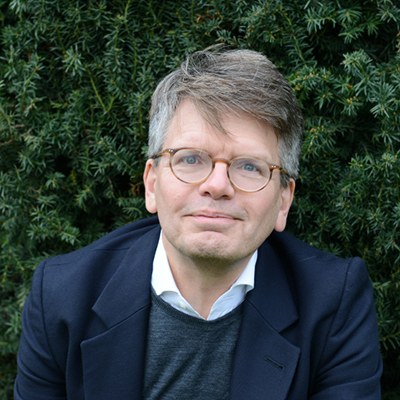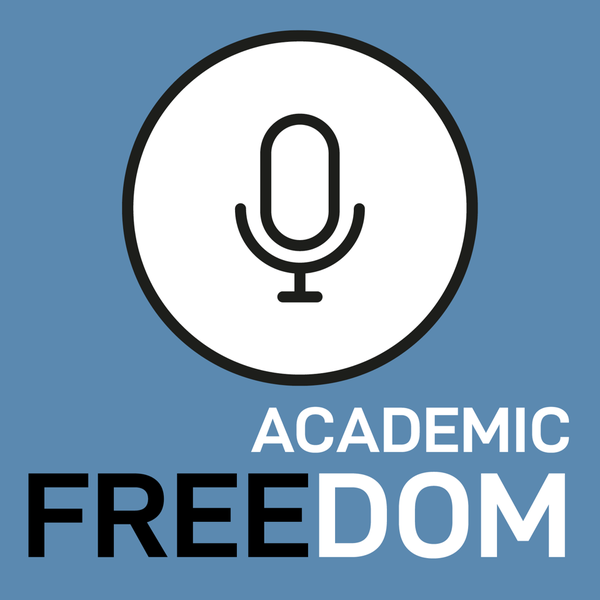
Academic Freedom Matters
A joint series by Freie Universität Berlin, Humboldt-Universität zu Berlin, and the Cluster of Excellence SCRIPTS
Freedom is the foundation upon which scientific work is built. Without it, there is no independent research, no controversial debate, no societal progress. However, it is precisely this freedom that is increasingly coming under pressure – both in Germany and around the world. Academics and universities are increasingly faced with high-stakes challenges that involve undue political influence, demands for controversial events to be cancelled, international tensions, and ethical conflicts.
The history of both of our universities is closely tied to questions of democracy, responsibility, and international partnerships – making the subject of academic freedom within our communities particularly relevant.
Freie Universität Berlin was founded in 1948 by professors and students in response to the persecution faced by students who were critical of the system at the university on Unter den Linden, at that time located in the Soviet sector of the divided city. Since it was founded, Freie Universität has been a place for open discourse and critical reflection. Humboldt-Universität zu Berlin was founded in 1809 as the Friedrich-Wilhelms-Universität and renamed in 1949. It too was founded in the spirit of science’s responsibility to society – and to act as a shaping force for the future.
These stories of our past and the histories of our universities hold us accountable – especially now, where academic freedom is under so much pressure, be it through political expectations, debates about cancel culture, international interdependencies, or economic influence.
With the “Academic Freedom” series, put together with contributions from both institutions, we aim to inform, raise awareness, and promote dialogue. What does academic freedom mean today – on an individual and an institutional level? Where are its limits; where is it under threat? And what role do science and academia themselves play in upholding this freedom?
“The German Basic Law declares that sciences, research, and teaching shall be free – it recognizes academic freedom as a basic right. The only limitation placed on this right is that science and research be carried out in accordance with the fundamental values laid down in the Basic Law. The importance of protecting academic freedom is being made clear by current developments in the USA and elsewhere. Those looking to advance society and the economy through their research must be allowed to work freely. Academic freedom and fundamental constitutional values are priceless assets that we at Humboldt-Universität zu Berlin champion and defend.”
Julia von Blumenthal, President of Humboldt-Universität zu Berlin
During the current summer semester, we will be providing insight into ongoing debates surrounding academic freedom. We will shed light on legal, political, and ethical dimensions of academic freedom, while providing researchers from both universities with a platform to share their expertise and unique perspectives. Our aim is to draw attention to academic freedom and raise awareness of its importance – for researchers, for students, and for everyone with an interest in science and research.
Freie Universität and Humboldt-Universität zu Berlin are advocates for a scientific system that is strong and open to all – and that is built upon values such as autonomy, responsibility, and critical discourse.
“Societies are at their strongest and most productive when everyone is able to fully and freely realize their talents and potential. But this requires access to independent information and scientific expertise. Academic freedom is thus a basic pillar of democracy – it is a necessary driver of collaborative innovation.”
Günter M. Ziegler, President of Freie Universität Berlin
Academic freedom is not a privilege. Nor, if viewed from a global perspective, is it something to be taken for granted. It is, however, undoubtedly necessary if universities are to preserve their key function as places of learning and innovation – and where conflicting points of view are allowed to coexist.
We can only answer the big questions of our times if scientists and scholars are free to carry out their work uninhibited.
Ottawa Declaration in support of academic freedom
Against the backdrop of global restrictions on scientific freedom, and not least in light of recent political developments in the United States, on 2nd June 2025 the science academies of the G7 countries have jointly published the Ottawa Declaration. The document stresses the importance of academic freedom, institutional autonomy, the integrity of research, research security, and the responsible conduct of research in support of the public good.
Ottawa Declaration (PDF)
Voices of Academic Freedom
Scholars and researchers from Freie Universität Berlin and Humboldt-Universität zu Berlin share the latest insights from their fields
To thematic focus "Academic Freedom Matters" of Freie Universität Berlin

University Autonomy for the Common Good
Academic freedom has not only an individual but also an institutional dimension. University autonomy is in some cases explicitly enshrined in constitutional texts, and in any case, it is rooted in the fundamental right to academic freedom. It serves the public good. A central criterion is “scientific adequacy.” Some science policy regulations, however, encounter limits in this regard.
To the article by Matthias Ruffert, HU
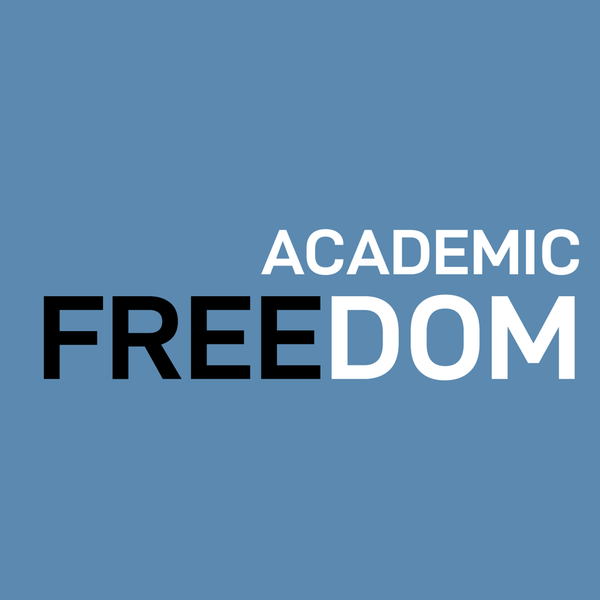
Who Should Not Speak at a University?
At universities, the invitation or disinvitation of politically exposed speakers often leads to controversy. The decision about who may or may not speak should be guided by the university’s core mission.
To the article by Romy Jaster and Geert Keil, HU
University Autonomy:
Self-Governance Is Enshrined in Law
Academic freedom protects not only individual researchers, but also universities. Despite state funding, Art. 5.3 of the Basic Law safeguards their autonomy in research and teaching. Political influence remains a danger -
self-administration, legal protection and solidarity are required.
To the article by Christoph Möllers, HU
Deutschlandfunk Podcast “Kulturfragen”: Is academic freedom in danger?
In light of the Gaza war, universities have been occupied, anti-Semitic slogans smeared and controversial events cancelled. Is academic freedom in danger? The presidents of Humboldt-Universität Berlin and Freie Universität Berlin discussed this question with presenter Dr Sebastian Engelbrecht on Deutschlandfunk podcast “Kulturfragen” on 23 March 2025.
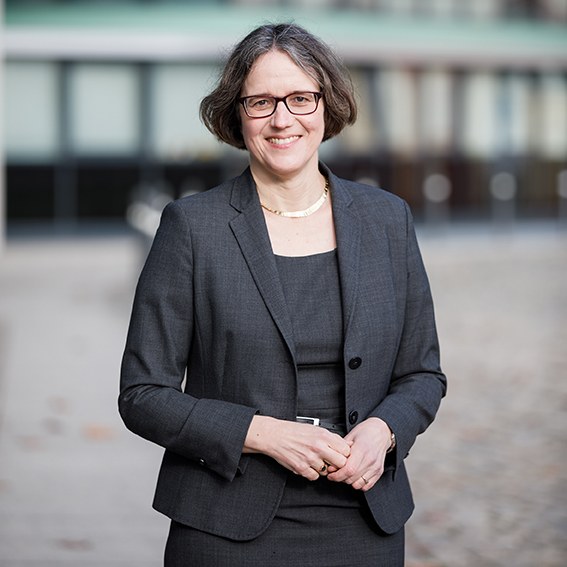
Welcoming Address
Academic Freedom Week 2025
Academic Freedom Week 2025 at HU Berlin focussed on the global threat to academic freedom. With international guests and endangered researchers, the university sent a strong signal in favour of solidarity, values and responsibility.
Welcoming address by HU President Julia von Blumenthal
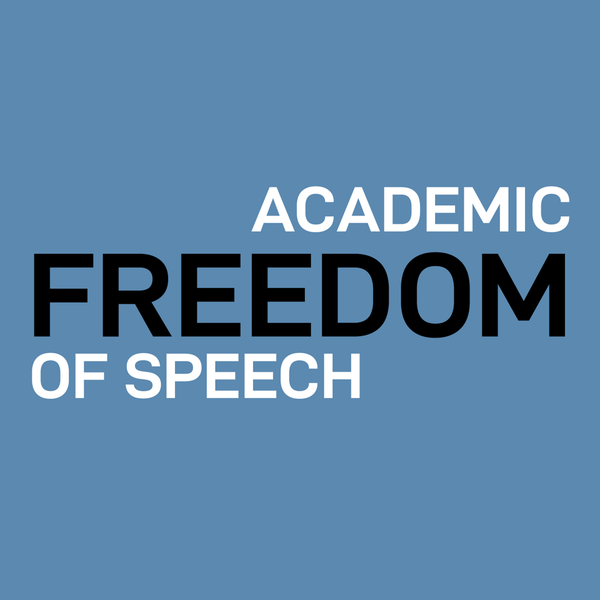
Academic vs. Freedom of Speech:
Ethical Guidelines of Humboldt-Universität
The opinions of academics on current topics are more in demand than ever. As a public institution, Humboldt-Universität offers space for discourse and debate. This can lead to tensions between academia and the public and between freedom of speech and academic freedom, especially when it comes to conflict-laden topics.
HU's Ethical Guidelines provide orientation

The Scope and Limits of Academic Freedom
Christian Calliess, Professor of Public Law and European Law, Freie Universität Berlin
Academic Freedom under Pressure:
A Transatlantic Perspective
Tanja A. Börzel, Professor of Political Science, Freie Universität Berlin


